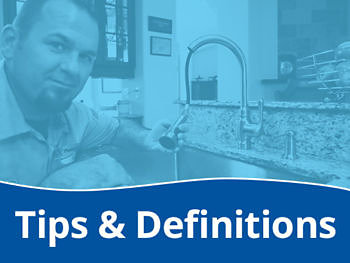How To Protect Your Home’s Water From These Harmful Chemicals

August 31, 2018
The harmful chemicals?
Trihalomethanes (TTHM) and haloacetic acids (HAA5). (We know, it’s a mouthful.)
You might have heard some recent controversy over the testing and monitoring of these chemicals in Florida’s water supply. An article by WLRN talks more about the situation, if you want to read up on it.
But for those who just want a condensed version of this controversy, we’ll explain:
- Why Sarasota’s public water supply contains these chemicals
- How you can prevent them (and other chemicals) from entering your home’s water
First, though, let's answer the question at hand: Is Sarasota's drinking water safe?
Want peace of mind when it comes to the quality of your drinking water? Contact us about installing a water filtration system in your Florida home.
Contact us
Is Sarasota’s public drinking water safe?
The short answer? According to official testing, yes, our drinking water is safe.
In the 2017 Drinking Water Quality report, the levels for both TTHM and HAA5 measured well within the EPA's maximum limits.
So, what's all the controversy about? Well, some people are concerned that the levels of TTHM and HAA5 may fluctuate throughout the year.
You see, TTHM and HAA5 are byproducts of chlorine and chloramine—the common disinfectants we use to clean our drinking water. So, when chlorine/chloramine levels rise, so do TTHM and HAA5 levels.
However, these chemical level fluctuations are usually small and temporary. In other words, yes, your drinking water is still safe.
Want peace of mind anyway? Consider water filtration.
If installing a water filtration system in your Florida home will prevent TTHM and HAA5 from entering your water supply, along with other chemicals and contaminants like:
- E. coli
- Radium
- Arsenic
- Lead
- Chlorine
- Chloramine
In addition to removing harmful contaminants, a water filter will:
- Improve your water’s taste
- Soften your water by removing hard minerals
- Remove strange odors and unusual colors
What type of water filter should I choose?
First off, you can choose between 2 types of systems:
- Point-of-use (POU): Installed at a single water connection, normally beneath a kitchen or bathroom sink. If you only want filtered water at a single fixture in your home, go with a POU system.
- Point-of-entry (POE): Installed on the main water line where it connects to your home, typically in front of your water heater. If you want filtered water throughout your entire home, a POE system is the one for you.
Then, you’ll need to choose what kind of filtration process you want for your home (both remove TTHM and HAA5):
- Activated carbon
- Less expensive option
- Uses a carbon block that acts like a magnet to pull impurities from the water
- Doesn’t remove as many contaminants as it does when combined with reverse osmosis
- Reverse osmosis (with an activated carbon filter)
- More expensive option
- Filters water through a multi-stage process
- Removes more contaminants than a carbon filter alone
To give you an idea of what contaminants each process filters, we made a chart comparing the 2:

Our recommendation: If you can swing the higher cost, go with a reverse osmosis system that has an activated carbon filter. Your water will be cleaner and softer than it would be with just an activated carbon filter.
Need help choosing a water filtration system? Ask a Florida plumber.
Contact us and we'll help you rid your home’s water of those nasty chemicals. Our plumbers will give you the best water filtration options for your home and your needs. View our full service area in Florida.
Posted in: Tips